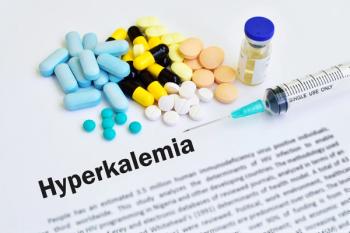
ASH is happening December 9 through 12 in San Diego, California.
Erin Hunter is an assistant editor at Pharmacy Times®. She is a proud alumna of the University of Massachusetts. She graduated with degrees in Journalism, Art History, and Environmental Conservation.

ASH is happening December 9 through 12 in San Diego, California.

These patients have slow brain wave activity during wakefulness, which can reduce the firing of nerve cells to protect against the pathology of epilepsy.

Chia seeds are a nutrient dense product that are rich in fiber and omega-3 fatty acids, and could have a hypocholesterolemic effect when ingested.

A new hydrogel drug delivery system could change the way diabetes is managed.

Although personality was linked to cognitive performance on tests, it was not linked to dementia pathophysiology.

Iberzaplstat was non-inferior to standard of care vancomycin, was safe and tolerable, and will advance into a phase 3 trial.

Patients with this genetic variant have impaired neuronal excitability, a trait that has been linked to malfunctional synapses.

If approved, this combination will become a first-line treatment option for patients who are cisplatin eligible.

Following acoustic stimulation intervention, many patients experienced a reduction in neurobehavioral symptoms.

An animal study shows that early-life stress may increase risk-taking behaviors in adulthood; in humans, this could translate to risk of substance use disorder.

Patients with uncontrolled chronic obstructive pulmonary disease and type 2 inflammation had significantly better lung function at least a year into dupilumab regimen.

Nacre may combat cortical bone loss and improve bone strength to reduce risk of fragility fractures.

Neuroimaging showed that people who lacked sleep had altered risk-taking behaviors.

Melatonin is not fully regulated by the FDA, and there are concerns about children taking the supplement due to associated risks, such as dependency and overdose.

Patients hospitalized for traumatic brain injury have different brain injury biomarkers and rates of glucose variation.

In a phase 3 trial, none of the patients receiving nirogacestat reached median progression-free survival, indicating that it may effectively reduce disease progression.

Pharmacies have the potential to introduce testing services, promote public health campaigns, collaborate with anemia-led clinics, and get more prescribing rights to diagnose anemia.

Mice with human breast cancer tissue and high levels of the Myc cancer-driving gene who received a vitamin B5-deficient diet had slower tumor growth.

While manganese can sometimes be considered toxic, prenatal exposure may be linked to better memory at adolescence.

The approval will benefit patients who have difficulty swallowing, dysphagia, or high taste sensitivities and struggle to adhere to the original antibiotic.

The genes that predispose a person to sleep problems can impact that person across their entire lifetime, so interventions targeted toward a younger audience could be beneficial.

Lessons from the pharmacy taught her about good communication. Now it’s her turn to educate pharmacists.

Bupivacaine liposome injectable suspension was shown to reduce opioid use after surgery and significantly improve pain.

The on-demand enzyme replacement therapy reduced acute thrombotic thrombocytopenic purpura events in patients who experience potentially fatal blood clotting.

More studies are needed to show conclusive benefits on patient functionality.

A low carbohydrate diet plus a sodium glucose contransporter-2 (SGLT2) inhibitor was found to be safe and effective for weight loss and glycemic control in patients with diabetes and chronic kidney disease.

Deep-rooted discrimination and stigma can contribute to stressors that worsen disease progression and access to care, according to experts.

Understanding the mechanisms leading to weight loss could help identify potential benefits for cardiorenal health in patients with chronic kidney disease.

Sodium-glucose cotransporter-2 inhibitors and sodium zirconium cyclosilicate may be paired with these kidney disease medications to reduce high serum potassium.

Exercise has the potential to improve physical performance and fitness at the very least, but a multidisciplinary intervention may work better for patients with chronic kidney disease.